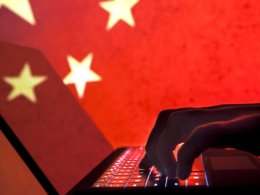The field of international relations is synonymous with the concept of power — more specifically, "hard" power and "soft" power. The former refers to a country's use of coercive tactics to get what it wants; the latter employs the carrot rather than the stick. It involves the shaping of preferences through more subtle means.
Examples of soft power include economic power, political and religious values, diplomacy, and culture. Within culture, we find art, music, and video games. Yes, video games. With their vast popularity and reach, video games are among the most influential, if often overlooked, forms of soft power in today's world. But one place it's not overlooked is Beijing.
Last year, the Chinese Communist Party (CCP) referred to online gaming as "spiritual opium," warning that the industry, now "worth hundreds of billions," could "destroy a generation." Soon after the announcement, Beijing barred those under the age of 18 from gaming on weekdays and limited their play to just three hours on weekends.
Although China vigilantly polices gaming content for its home market — banning dissenting political views and permissive social values — major Chinese companies have made deep inroads in the international gaming market, acquiring gaming studios across the globe and aggressively expanding market share. Because of these acquisitions, video games may "look a little different" in the future, warn many cultural commentators and industry observers. That's because video games are more than just a form of entertainment. They are highly immersive, narrative-driven storytelling mediums.
In the 1960s, the Hungarian-born American academic George Gerbner put forward a sociological communications framework aptly titled "cultivation theory." In an analysis that continues to influence media psychologists to this day, Gerbner argued that sustained exposure to mass media — especially television, the dominant medium of his day — eventually shapes users' perceptions of social reality in profound ways.
Video games too can inform or distort perceptions of reality, and the CCP appears to be using them to influence the ways in which users view China and its government. According to a 2021 Guardian article, for example, this includes banning references to pro-democracy movements in Hong Kong and comparing Chinese ruler Xi Jinping to Winnie the Pooh. Games are being geared to directly reflect Chinese values.
Many of those that Beijing is attempting to influence reside in the U.S. Gaming is now one of the United States' favorite pastimes, with 214 million active gamers among the nation's 329 million people. The average gamer now spends more than 8 hours a week gaming. That's 384 hours a year, or 16 full days. Some play as many as 80 hours a week (160 days per year).
Music, movies, and TV simply can't compete with the allure of gaming. This explains why Chinese companies like ByteDance, parent company of the wildly popular — and increasingly controversial — video-sharing platform TikTok, are also cashing in on the gaming craze. Between 2001 and 2022, ByteDance's portfolio generated more than $1 billion worldwide in revenues, from mobile games alone.
Another huge Chinese company, Tencent, is also busy growing its gaming empire. In an attempt to reach more users, Tencent has poured considerable sums into acquiring overseas partners and development centers. Take the video game development studio TiMi Studio Group, for example. A subsidiary of Tencent Games, TiMi is headquartered in Shenzhen, China, with offices in Singapore, Montreal, Chengdu, and Shanghai.
Although barriers to entry for Chinese companies looking to enter Western markets are low, the same is not true for Western companies looking to enter China. For example, foreign gaming companies looking to enter China are "legally obliged to have a local partner," as journalist Oliver Holmes has reported. This has benefited the likes of Tencent. As Holmes highlighted, Tencent, a company with close ties to the Chinese government, has acquired large stakes in a number of foreign video game operations. Only after such partial acquisitions and partnerships have been consummated are foreign firms allowed access to China's lucrative gaming market.
Riot Games, the company behind League of Legends, one of the most successful games of all time, sold a 93% stake to Tencent for somewhere in the region of $400 million. Tencent has also either invested in or completely bought out dozens of other huge video game companies, including Activision Blizzard, Ubisoft, Platinum Games, FromSoftware, Marvelous Inc., and Epic Games, the company responsible for Fortnite, the most popular online game in the world. Fortnite has 270 million players worldwide, including 83 million residing in the U.S.
Games aren't just a narrative-driven medium that can serve as a vehicle for stealth cultural imperialism; they are also a data-harvesting medium. Again, this fact is not lost on China, a country that has, according to reports, stolen the personal data of 80% of Americans.
In a 2020 op-ed for the Wall Street Journal, Jordan Schneider and Dave Aitel asked if Chinese video games posed a distinct threat to U.S. national security. They answered with a resounding yes. Companies like Tencent are using games to spread soft power and collect the data of U.S. citizens, they wrote. More worryingly, they continued, with access to hundreds of millions of devices, China has "an unrivaled opportunity to use games to conduct intelligence operations."
According to a recent Heritage Foundation podcast, some Chinese-backed games come with software that runs on a gamer's computer even when they are not playing, and this software could be used to collect data and monitor online activity.
Gaming technology has come a long way from the days of Pac-Man and Super Mario. Today, gamers don headsets and enter all-consuming virtual worlds for hours (or even days) at a time. Going forward, with the advent of the metaverse, gaming is set to become even more captivating and even more consuming, with even more data being harvested. As gaming evolves, China's grip on the sector appears to be tightening.
Related Story: TikTok Pushes Harmful Content to Users as Often as Every 39 Seconds










